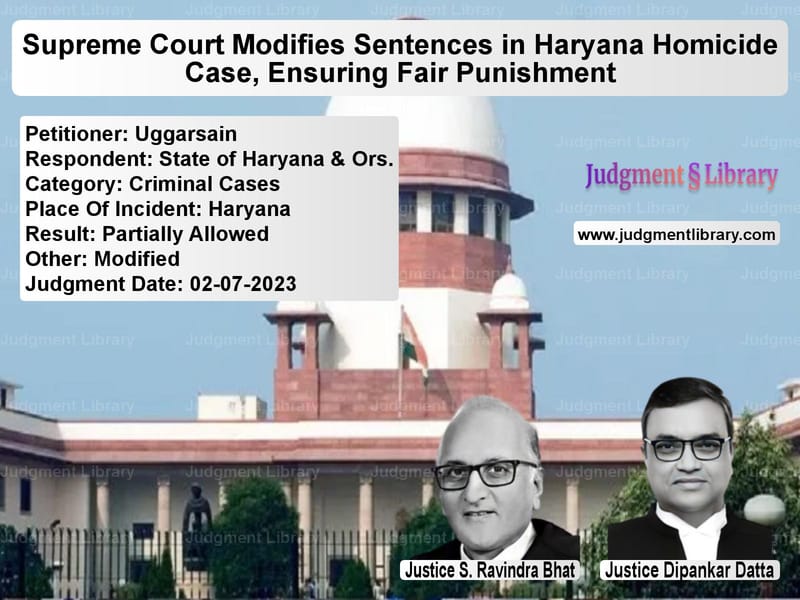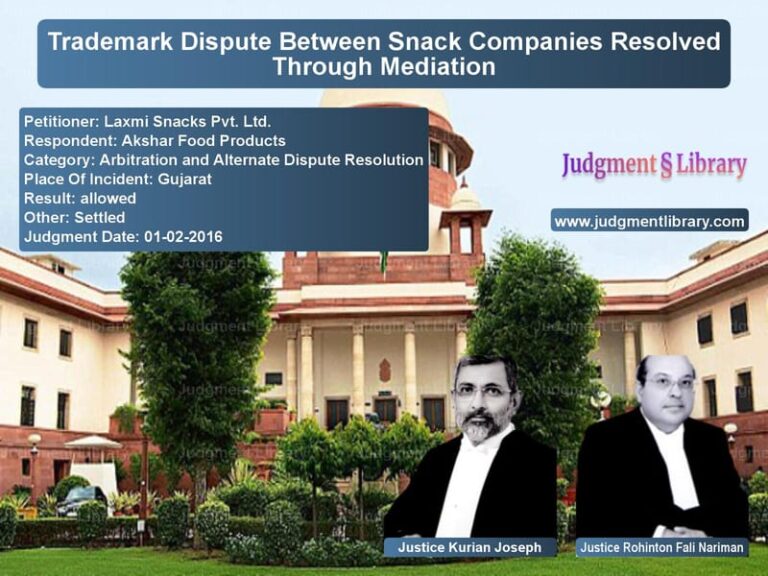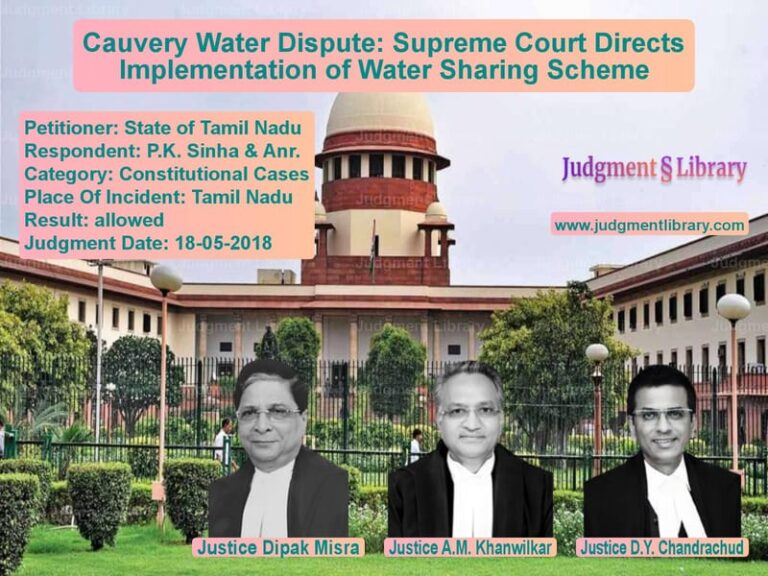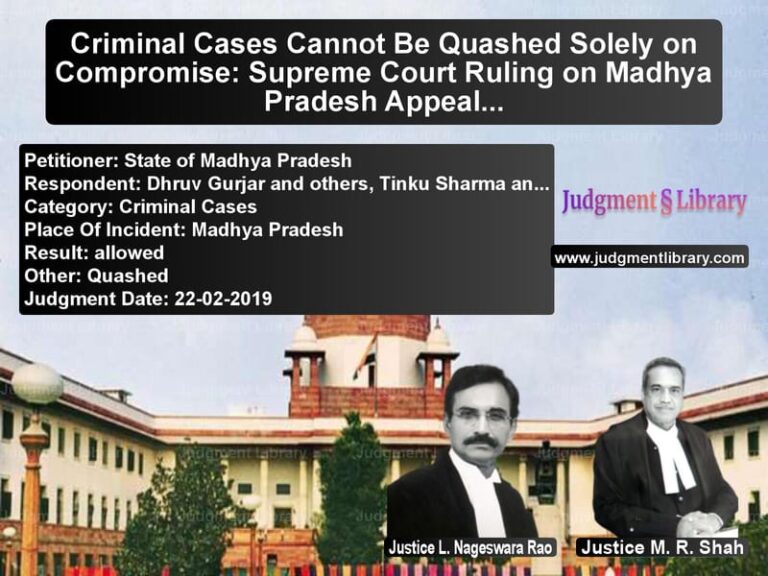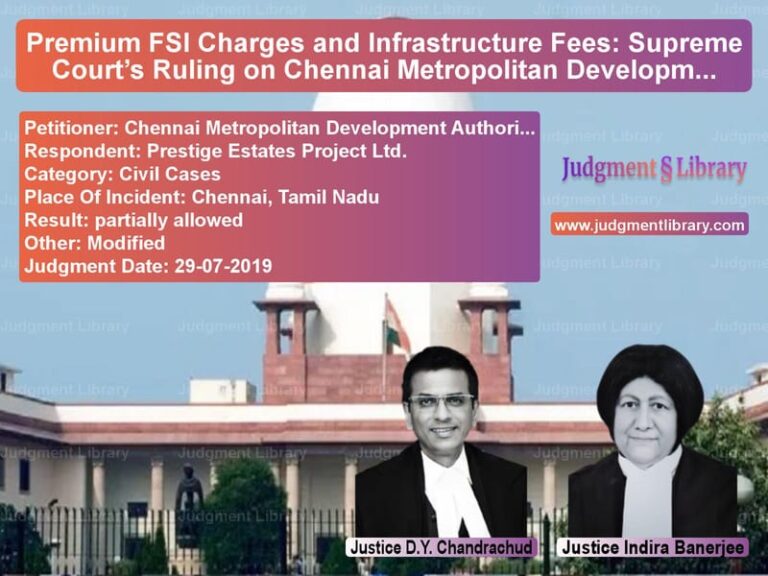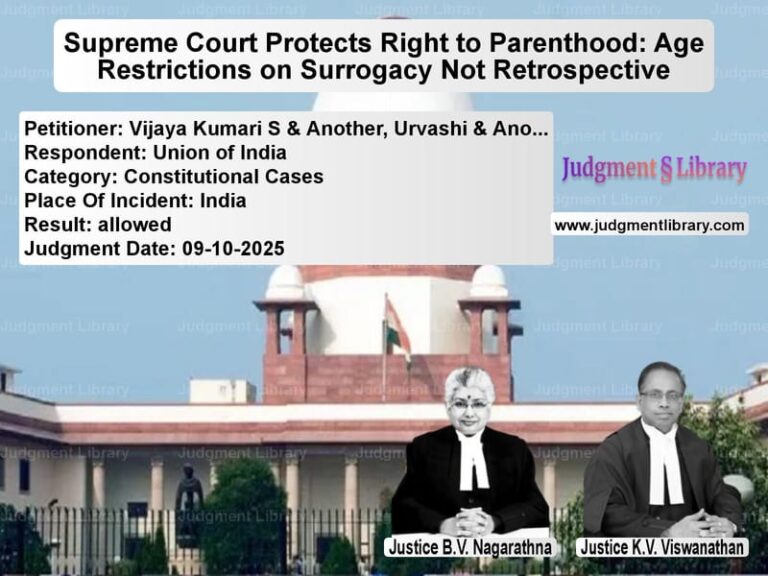Supreme Court Modifies Sentences in Haryana Homicide Case, Ensuring Fair Punishment
The Supreme Court in Uggarsain vs. State of Haryana ruled on an appeal challenging the reduction of convictions and sentences for a group of accused in a homicide case. The Court partially allowed the appeal, modifying the sentences of several accused, ensuring uniform punishment based on the severity of the crime.
Background of the Case
The case originated from an incident that took place on March 8, 2012, following an altercation during the Holi festival. The dispute escalated into a violent clash between two groups, resulting in the death of Subhash and injuries to several others.
The prosecution alleged that the accused, armed with weapons such as rods, iron pipes, and farsas, attacked the victims outside their home. Subhash, who suffered serious head injuries, was hospitalized but succumbed to his injuries on March 12, 2012. Initially, the police registered an FIR under Sections 147, 148, 149, and 323 IPC. After Subhash’s death, Section 302 IPC was added.
Trial Court Verdict
The Sessions Court convicted all accused under:
- Section 302 read with 149 IPC (murder with common intention) – Life imprisonment.
- Section 148 IPC (rioting with deadly weapons) – One year of rigorous imprisonment.
- Section 323 read with 149 IPC (voluntarily causing hurt) – Six months of rigorous imprisonment.
The convicted individuals appealed to the Punjab and Haryana High Court.
High Court’s Ruling
- The High Court reduced the conviction from Section 302 IPC to Section 304 Part II IPC (culpable homicide not amounting to murder).
- It held that the incident was a sudden fight, ruling out premeditation.
- The sentences were adjusted to “period already undergone,” leading to disparities in punishment among the accused.
Appeal Before the Supreme Court
The complainant, Uggarsain, challenged the High Court’s decision, arguing that the reduced sentences were unjustified and inconsistent.
Key Legal Issues Before the Supreme Court
- Whether the High Court erred in modifying the conviction and sentence under Exception 4 to Section 300 IPC.
- Whether the “period already undergone” criterion led to inconsistencies in sentencing.
- Whether the revised punishment adequately reflected the gravity of the crime.
Arguments by the Appellant
The complainant’s counsel contended:
- The attack was deliberate, as the accused assembled with weapons, showing premeditated intent.
- The sentence reductions created disparities, with one accused serving only 11 months while another served 9 years and 5 months.
- The gravity of the crime warranted a uniform and proportionate sentence.
Arguments by the Respondent
The defense argued:
- The High Court correctly applied Exception 4 to Section 300 IPC, recognizing the absence of premeditation.
- The reduced sentences considered factors like age, family circumstances, and time already served.
- Further modifications were unnecessary, given the passage of time.
Supreme Court’s Observations and Judgment
The Supreme Court, comprising Justices S. Ravindra Bhat and Dipankar Datta, ruled in favor of a uniform sentencing approach.
1. Sudden Fight Justified Conviction Under Section 304 Part II IPC
“The High Court correctly concluded that the altercation escalated suddenly, bringing the case under Exception 4 to Section 300 IPC.”
2. Disparity in Sentences Was Arbitrary
“The High Court’s reliance on the ‘sentence already undergone’ led to disproportionate punishments. A uniform approach is necessary.”
3. Sentences Modified to Five Years Rigorous Imprisonment
“Given the severity of the injuries inflicted, a minimum sentence of five years is appropriate, ensuring fairness among all convicted individuals.”
Final Judgment
- The Supreme Court upheld the conviction under Section 304 Part II IPC but modified the sentence to five years rigorous imprisonment for all except two accused who had already served longer sentences.
- The affected individuals were ordered to surrender within six weeks.
Implications of the Judgment
- Reinforces the principle of uniform sentencing for similar offenses.
- Clarifies the application of Exception 4 to Section 300 IPC in cases of sudden altercations.
- Ensures proportionality in criminal punishments.
The ruling strikes a balance between acknowledging the sudden nature of the fight and ensuring justice through equitable sentencing.
Petitioner Name: Uggarsain.Respondent Name: State of Haryana & Ors..Judgment By: Justice S. Ravindra Bhat, Justice Dipankar Datta.Place Of Incident: Haryana.Judgment Date: 02-07-2023.
Don’t miss out on the full details! Download the complete judgment in PDF format below and gain valuable insights instantly!
Download Judgment: uggarsain-vs-state-of-haryana-&-o-supreme-court-of-india-judgment-dated-02-07-2023.pdf
Directly Download Judgment: Directly download this Judgment
See all petitions in Murder Cases
See all petitions in Bail and Anticipatory Bail
See all petitions in Legal Malpractice
See all petitions in Judgment by S Ravindra Bhat
See all petitions in Judgment by Dipankar Datta
See all petitions in partially allowed
See all petitions in Modified
See all petitions in supreme court of India judgments July 2023
See all petitions in 2023 judgments
See all posts in Criminal Cases Category
See all allowed petitions in Criminal Cases Category
See all Dismissed petitions in Criminal Cases Category
See all partially allowed petitions in Criminal Cases Category

